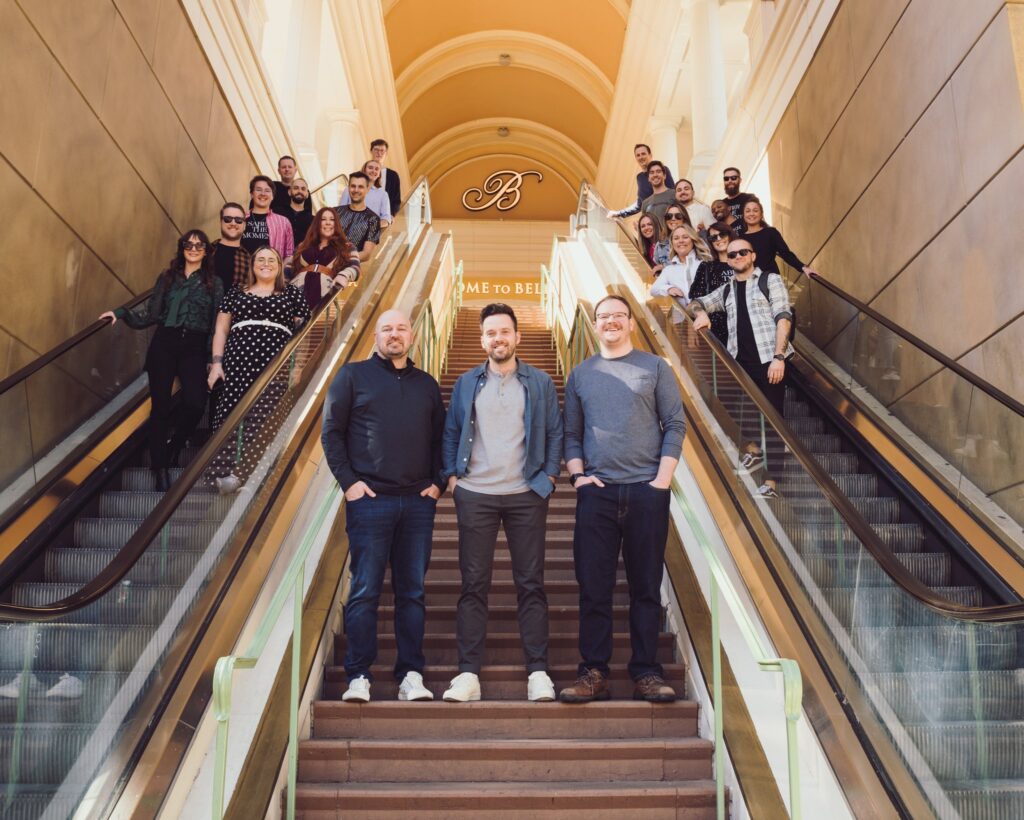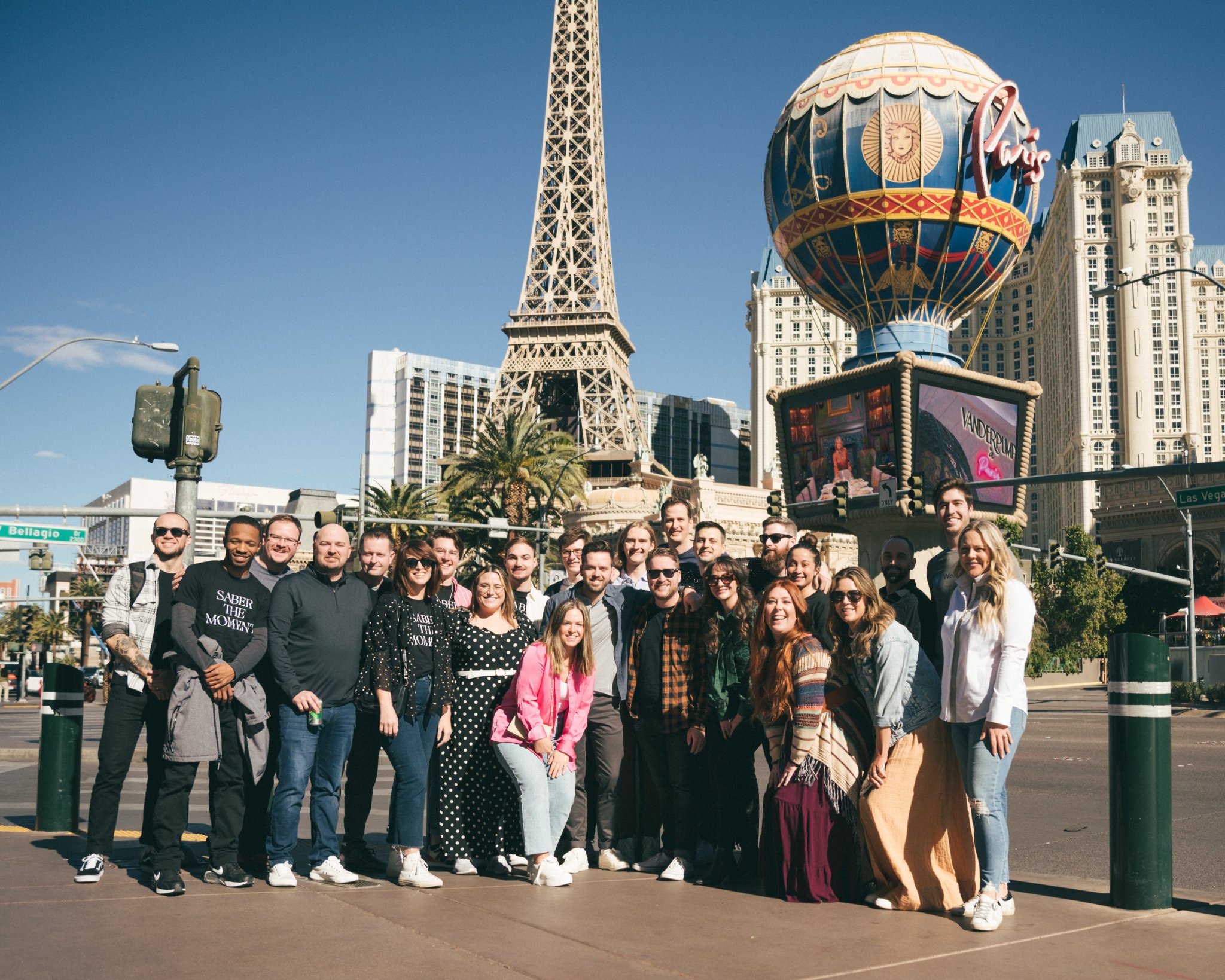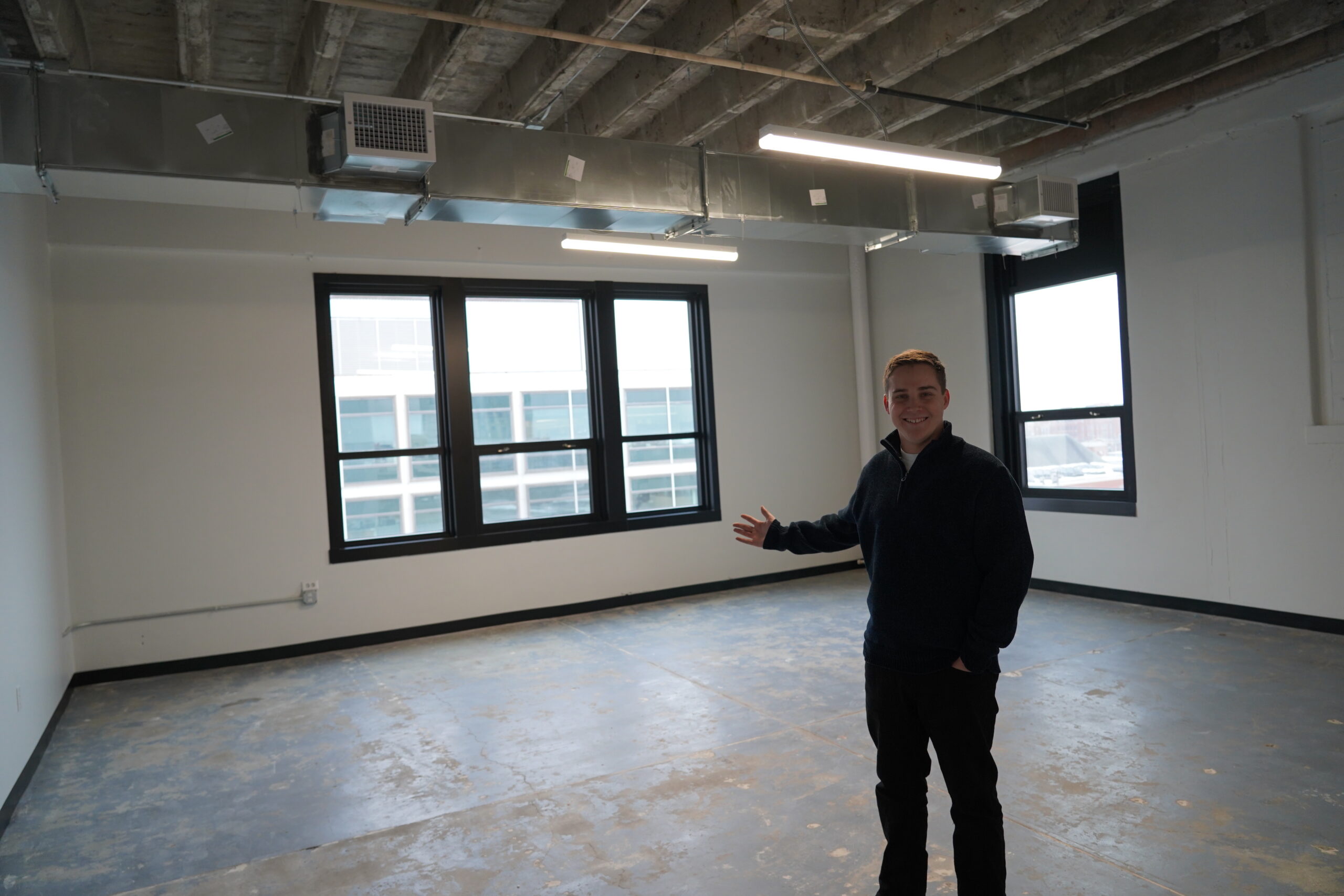Nebraska startup culture has more to offer than ping pong tables and beer fridges.
The pay is generally less than you might expect working for a more established company. But working for a startup comes with the potential of shared ownership, literally in the form of an equity stake. More broadly, startup employees have the ability to make an impact on all parts of the business.
“Startups are a launching pad for your career,” said Justin Krug, senior business development representative at Workshop. “You wear so many different hats, you take on so much more responsibility than someone might at a 1000+ size organization.”
You don’t have to be an executive to make a big impact when you’re one of a startup’s first 10 hires. Krug was hire number 10 at Workshop, the Omaha-based startup.
“You’re much closer to everything, to every other department, to the customer,” said startup advisor Corey Spitzer.
Spitzer spent most of his career as a technical lead for multiple startups, but also has experience working in organizations with 10,000+ employees. He said he prefers working with startups because the quick pace enables a feedback loop that provides immediate satisfaction.
At “mega corps there’s a lot more black holes that your work goes into,” Spitzer said.
The opportunity to learn from and engage with different areas of the business is what keeps Amanda Martinez, Fable’s software engineering director, interested in startups. “I’ve been able to contribute to marketing and contribute to building a community and contribute to all of these things that if I was just an engineering manager at a bigger company, would be completely out of my reach,” she said.
“Those things also give me a different perspective of what my team needs to build and the ‘why’ behind it,” Martinez said. Which, she said, allows her to make smarter decisions alongside her team.
Being closer to the “why” is something Nicole Wheeler said she appreciated during her five-year tenure at Hudl’s Omaha office. “I don’t think startups have the opportunity to not have it all laid out in terms of ‘What is their story’ and ‘How does this fit in?’ she said. “It was a big surprise how well documented a lot of stuff was.”
Wheeler contrasted that to working for her current company McGraw Hill. It’s not like you can find source documents about the vision from 100 years ago, Wheeler said. “One of the benefits of Hudl being so new was there was still a lot of history that was there that you could learn from.”
The opportunity to keep learning, Krug said, was a primary reason he wanted to work for a startup after graduating from the University of Nebraska at Omaha. “I sat next to our CEO for almost a year. Anytime I had access to him.” ”
The opportunity for mentorship spans beyond entry level startup employees. Spitzer said access to company investors and board members helped him while working at the executive level. He said it was incredibly valuable having that outside perspective.
“You could just say, ‘Hey, I’m struggling with this decision. Tell me what works for you at other companies that you’ve been a part of,” Spitzer recalled. “It’s just a different dynamic.”
Another difference Wheeler pointed out is the level of autonomy that comes with working at a startup. She said at Hudl she was in charge of deciding how to spend her day. Compared to a larger company where tasks tend to be delegated, Wheeler said “this was more like using my knowledge–what do I think is important and what is the most important thing to get done today?”
Wheeler added, “Which is good and bad, right? Because if you’re in the right mindset for that, that’s great. But if you are confused or feeling directionless, then you need to be proactive enough to go out and have those conversations to be able to get your work done.”
A smaller team and less bureaucracy allows for a more nimble approach to working, Spitzer said. “It’s much easier to turn the ship…Like if everybody agrees that we should be doing this slightly differently, we’ll change it today.”
Another part of startup culture is perks like traveling to a company retreat. Krug recently attended a retreat with the entire Workshop team in Las Vegas. Beyond making an impact and the ability to influence the direction of the company, Krug said working for a startup “is the most fun I’ve ever had working professionally.”

There are also specific challenges that come with working at a startup, Krug said. For example, “the ambiguity, especially early on.” Krug said on his first day he was handed a laptop and told to “go figure it out.”
“That was my new hire onboarding,” he said. Krug noted that the company has doubled since then and “now we have a more full fledged onboarding process.”
Managing work-life balance is another common struggle in startup environments where working 50 or 60+ hour weeks can be the norm, Martinez said.
Krug said he’s still trying to figure out what balance looks like for him. He said he recently found himself responding to a text from a potential customer while he was at the movie theater. “I didn’t have to do that,” Krug said. “But, you know, it’s one of those things that I felt obligated to do.”
Beyond navigating ambiguity and work-life balance, there can be other issues related to employee well being, Wheeler said. “One of the biggest problems I had was chronic migraines that have gotten worse as I’ve gotten older,” she said. Fluorescent lighting, poor ergonomics and too much time staring at a computer are all triggers for her.
Wheeler said she didn’t know who to talk to to try to get help because the human resources team was small and she worried she was being “a pain”.
Sometimes the startup you work for gets acquired and you suddenly find yourself working for a different, larger company. That’s what happened to Martinez when Flywheel was acquired by Austin-based WP Engine. She said the company culture slowly started to change.
“I think the first sort of eye opening thing for me was when I needed to purchase some software for my team,” Martinez said. “It took me three weeks and a Zoom meeting to purchase that software. It was literally like $600.”
Martinez said before that point she was able to use her company credit card at her own discretion. “I could have had this done three weeks ago, but you’re having me contact 12 different people,” she said. “This is not the life that I want to live.”
“I just want to be trusted to make the right decision for my team when they need it and move on,” Martinez said. “And I didn’t feel like I could do that anymore.”
Krug thinks, despite the potential drawbacks, that everyone should work at a startup for a year. It’s a great option to quickly gain skills that transfer across industries, he said. “It’s a mini MBA of how to run a successful company.”
Spitzer said that startups offer a level of challenge and fulfillment that can only be understood by experiencing it.
Martinez and Wheeler both mentioned diversity, equity and inclusion efforts as one area where Nebraska startups need improvement.
Wheeler said that with so many competing priorities, DEI tended to get put on the back burner. She said she struggled at times to find groups of like-minded people or even people with children the same age as hers while working for a startup. “I felt like I was one of the older employees,” she said. “Some of those culture fit things were a little harder.”
Wheeler started working for McGraw Hill after going fully remote during the pandemic. “When I started my current job, it was like, oh, everybody here has kids that are the same ages,” she said. “It was just nice to be able to talk about your life with your coworkers and have them understand.”
After leaving WP Engine, Martinez said she decided against working for another Nebraska-based startup and instead looked for a remote role. She said she didn’t feel that the local market “valued what I bring to the table”.
“Omaha companies vastly underpay compared to coastal companies,” Martinez said. “Money, opportunities, and also DEI” were the biggest contributing factors to her decision, she said. Martinez said she also wanted to continue working from home and worried that an Omaha-based company would eventually require her to come back to work in an office at some point. “I needed that flexibility,” she said.
Benefits are another consideration when deciding whether or not to work for a Nebraska startup, Wheeler said. If cheap health insurance or tuition reimbursement are important to you, then startups might not be the best option, she said.
“I would just say, really ask yourself why you want to make this jump and talk to as many people there as you can and get that point of view or get that temperature from people before you make that jump,” Wheeler advised.
Krug said while he loves the “sink or swim” nature of working for a startup, he realizes it’s not for everyone.
“If you’re looking for a J-O-B, job, at a company where you can just hide, you’re not gonna be able to hide at a startup,” Spitzer said.
“If you’re looking to do something with purpose, and that has impact, and to wear several different hats and not have your work go into a black hole, then startups might be good for you,” Spitzer said. “Yes, it’ll be more stressful, more intense. There’s more pressure. But for me, it’s totally worth it.”



